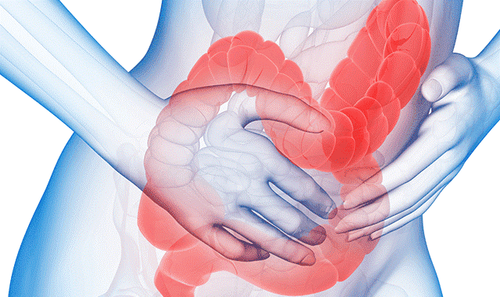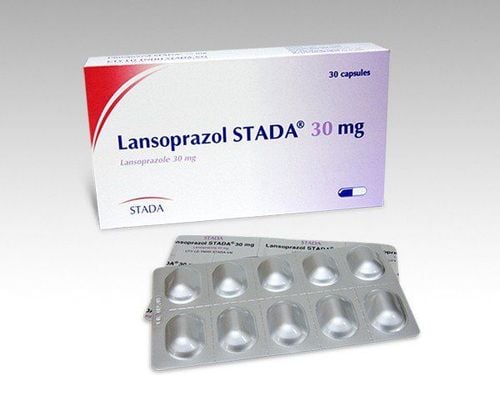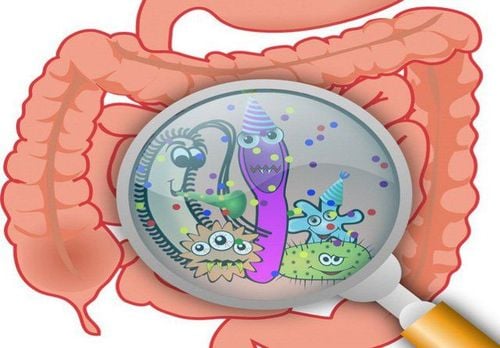This is an automatically translated article.
The article was professionally consulted by Gastroenterologist, Department of Examination & Internal Medicine - Vinmec Hai Phong International General HospitalIrritable bowel syndrome is a common digestive disorder, causing chronic digestive disorders, a long-lasting condition that greatly affects the life and psychology of patients.
The incidence of IBS is higher in young people than in people over 50 years old. The overall incidence of IBS is higher in women than in men. Women may be more prone to constipation than men
1. What is irritable bowel syndrome?
Irritable bowel syndrome is a syndrome (IBS), not a disease, characterized by functional gastrointestinal disorders characterized by chronic abdominal pain and altered bowel habits without physical damage. structure or biochemistry of the digestive system.The disease is characterized by defecation disorders (diarrhea or constipation, possibly with alternating episodes of diarrhea and constipation), abdominal pain, abdominal distension with a recurrent nature, which may be accompanied by Change in stool properties (mucus or broken stools), especially the above symptoms usually disappear or improve much after having a bowel movement. The disease is easy to recur, causing a lot of discomfort for the patient as well as affecting the quality of life.

Biểu hiện bệnh đại tràng co thắt đa dạng nên gây khó khăn cho việc chẩn đoán
2. Irritable bowel syndrome is related to which diseases?
Irritable Bowel Syndrome is still unknown to date. The exact cause is unknown, Several factors including physical and mental factors have been shown to be involved in this syndrome such as: intestinal motility, visceral sensitization, enteritis, post gastrointestinal infection, altered gut microbiota, bacterial overgrowth, food sensitivities, genes, or psychological stressors.That's why people with irritable bowel syndrome are often associated with other gastrointestinal and non-digestive problems. Diseases commonly associated with irritable bowel syndrome include:
2.1 Coordination conditions
IBS is associated with other conditions including: fibromyalgia, chronic fatigue syndrome (also known as systemic exercise intolerance), gastroesophageal reflux disease, functional dyspepsia , non-cardiac chest pain, and psychiatric disorders including depression, anxiety, and psychosisGastroesophageal reflux disease: People with irritable bowel syndrome are more likely to have GERD. compared to others. This is due to a decrease in lower sphincter pressure, causing reflux of gastric juices from the stomach to the esophagus and even the pharynx. The disease is manifested mainly by burning symptoms in the epigastrium, or belching, heartburn, in some prolonged cases, it can cause chronic or recurrent pharyngitis.
Functional dyspepsia: Diagnostic criteria: have one or more of the following:
a. Discomfort after eating
b. No early
c. Epigastric pain
d. Epigastric burning
AND
No evidence of structural disease (including upper endoscopy) that could potentially explain the symptoms

Nóng rát vùng thượng vị là biểu hiện đặc trưng của hội chứng ruột kích thích
2.2 Diseases not of the digestive system
Non-cardiac chest pain: Chest pain from GERD can resemble angina and can be described as pressing or burning behind the breastbone and radiating to the back, neck, jaw, or arms. It can last a few minutes to a few hours and clears up on its own or with antacids. It can occur after meals, wake the patient from sleep, and be aggravated by emotional stress. Chronic Fatigue Syndrome: A state of persistent fatigue that makes the patient unwilling or reduced his ability to study, work, and perform daily activities, which is the result of a variety of disease manifestations and diseases. go with.2.3 Psychological disorders
Stress: As mentioned above, irritable bowel syndrome is related to the activity of the central nervous system that governs the activity of the muscles of the colon, in people with irritable bowel syndrome or those with irritable bowel syndrome. experiencing excessive stress, making them more stressed and anxious, which creates a pathological spiral that makes treatment difficult. Depression: This symptom is common in people with long-term irritable bowel syndrome that is not well controlled, long-term digestive disorders, persistent pain, frequent fatigue without find the exact cause, frequent visits to medical facilities make patients depressed.Please dial HOTLINE for more information or register for an appointment HERE. Download MyVinmec app to make appointments faster and to manage your bookings easily.













